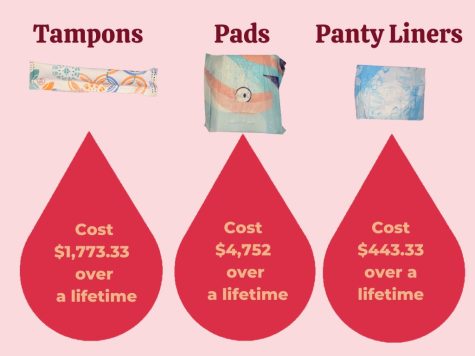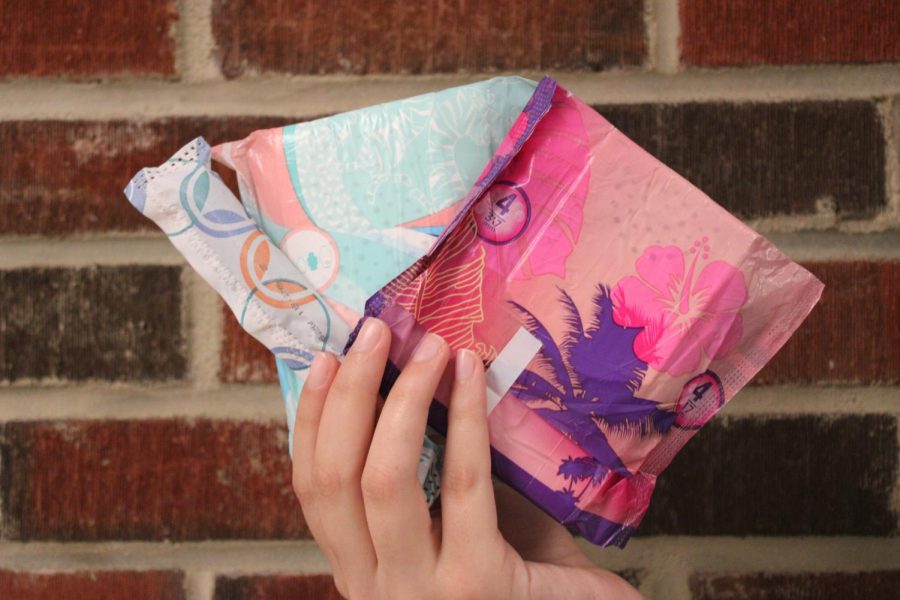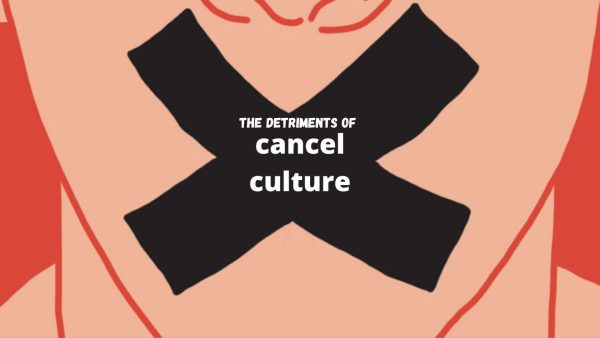The push for free period products
Recently, Scotland implemented an act to make period products free. Countries worldwide have accomplished similar acts, making period products easier to obtain. The United States falls behind and does not enact laws to make period products universally available for free. The need for “no cost” menstrual products nationally bears importance because it contributes to period poverty, a public health crisis. Furthermore, the United States categorizes products under luxury tax without help from government aid. Women must make decisions between needs like food over their personal well being.
September 7, 2022
Recently, Scotland passed a law that makes period products free of cost, becoming the first country to implement this. Other countries like New Zealand and New South Wales enacted similar acts. Since the overturning of Roe versus Wade, governments’ decisions on women’s health became a circulating discussion. America lags behind the rest of the world’s menstruation health advancement. The United States should implement health resources that provide period products free of charge because it contributes to period poverty, which can hurt women’s health.
The cost of period products creates a public health crisis for women. Medical news today defines period poverty as the inability to purchase menstrual products due to lack of income and lack of accessibility to hygiene facilities and menstruation education. Studies show 2 out of 5 American women face difficulty getting period products. Period poverty contributes to poor outcomes for women’s health. A study shows that 68.1% of women who face episodes of poverty experience symptoms of depression. In addition, women who cannot afford products must look for alternatives instead of menstrual products, which puts them at a higher risk of contracting infections.
The average woman spends almost 10 years of their life menstruating. The cost of using period products for that amount of time can add up. Common products like pads cost $4,752 in a lifetime and tampons cost $1,773.33. US government aid, such as SNAP or food stamps, does not cover period products’ costs. Impoverished women can feel conflicted about whether to prioritize food or menstrual products. In addition, period products fall under the luxury tax, imposed on items or services interpreted as luxuries instead of needs. Products remain essential for the health of women and illogical to impose a tax on necessary health needs for menstruation, a natural and biological process.
“It would be good to have it [free period products] in reach for all women because it’s cruel to have women not have period products for having to spend an abnormal amount of money each year just to live,” sophomore Ayah Abdallah said.

Others argue that providing free products only affects women at home. Periods drastically affect women’s places of work and school. In the United States, 4 out of 5 students reported not attending school because of a lack of access to period products. Furthermore, 36% of the polled women lost one or more days of work each month because of their periods because of unattainable menstrual hygiene products.. Implementing initiatives where product availability increases, can lessen the amount of absence from work or school. A study in Bangladesh showed when supplied with menstrual products, women exhibited fewer absences from work per month. Knowledge of successful acts in other countries can reflect on the usefulness of provisions that benefit women in working spaces.
Addressing the stigma associated with menstruation helps motivate the US government towards making period products free. Educating the importance of women’s health and menstrual education provides the knowledge to unpack the needs to provide these essential health items. Period stigma can lessen with the menstruation process when publicly addressed and taught as a natural process that occurs. As of now, only 15 states distribute period products in schools. Luckily, Georgia provides grants that pay for period products in school, letting students receive them for free.
“The state has granted middle and high schools grants for female hygiene products for three years. It was supported for those who can’t afford the products at home but is used by all students in North Cobb. This has helped immensely because beforehand the school had to buy those supplies and they were not a priority to first aid items. Now I am able to give as the need arises and share with teachers to keep in their classrooms [and more]. We are allotted another grant this year that will include an elementary school. I am thankful for the grant and I know many of our female students are as well,” NC nurse Fikera Gerald said.

















